Two words to remove from your harness racing handicapping lexicon after the summer fades into memories of bygone days.
 Back Class. I have never been a fan of that term even during the height of the racing season. It misrepresents wagering opportunities for what they really are. Horses that have moved down in class because of a series of racing misadventures may be considered valid back class chances. In addition, a move from another track that had a condition sheet with different parameters than the parameters of the sheet at the ship-to track may end up with a horse significantly up or down in class. Similarly, a horse may be staying at the same track, but the changing racing population forces the racing secretary to change the conditions thereby creating an unintended drop in class.
Back Class. I have never been a fan of that term even during the height of the racing season. It misrepresents wagering opportunities for what they really are. Horses that have moved down in class because of a series of racing misadventures may be considered valid back class chances. In addition, a move from another track that had a condition sheet with different parameters than the parameters of the sheet at the ship-to track may end up with a horse significantly up or down in class. Similarly, a horse may be staying at the same track, but the changing racing population forces the racing secretary to change the conditions thereby creating an unintended drop in class.
However, it does make my skin crawl when I hear someone wagering on a horse because of a class reached by a horse only a few months, and yes, we have all heard it – years ago. Nevertheless, during the heat of the racing season, one may consider a horse that loses form temporarily and now faces inferior foes. We will cover some of those contingencies in another article. But once we arrive in Form Change Season, lose that thought process as quickly as you would lose your old VHS tape player. Remember those things?
Per the poem, Locksley Hall by Alfred Tennyson, It is autumn, when a young man’s fancy lightly turns to…
Oh wait, that’s spring. In the fall, the fancy of the entire harness racing collective should turn to form change. Because that is what has happened in the past and will happen in the future. Is it the air temperature change or the inability of horses to keep their form after a long season of racing? My guess is a little bit of both, depending on the particular horse. Regardless of the reason, form change is reality in the fall.
Here is the form-change-season-tenet to live by. When a horse throws in at least two consecutive bad lines with no apparent excuse, match the current form against the current competition and if that race is not competitive with the cheaper class, do not consider playing the horse. It is commonplace for horses with those kinds of lines to be short prices and the door swings wide open for long shots to go marching in. “Yeah, but he was so much better than these only a month ago.” That is when it is time to bring out of mothballs two of my favorite tired old clichés.
- That was then. This is now.
- What have you done for me lately.
You are also on the lookout for horses that were non-competitive in the summer months and now are changing form. It is bad policy to consider a form reversal to be a fluke. Did a horse just win at 20-1 because of incredible racing luck, or did it do something it never did before? Those are the million-dollar questions because they are your moneymakers. Forget the bad form from the summer months. Forget back class. Focus on the two clichés. Form changes are your friends. The horse for which you have had no respect has just taken your lunch money. Let him take you to a fine dinner then next time he races.
A Special Form Change Season Bonus for Northeast Harness Racing Players
As I have oft repeated, a key to continued success is being extremely fickle. If you consider ‘fickle’ to be a demeaning word, you may prefer calling yourself adaptable. The point is, be prepared to change your opinion in a heartbeat if you want to succeed. However, one pattern has been amazingly consistent throughout the years during the fall form change season. Pocono and Vernon Downs shippers rarely dent the Meadowlands winners circle during the summer months. But that all changes when the leaves begin their descent from the trees. Let’s just keep this between us. Okay?
Power to the punter.
by Gil Winston, for Harnesslink

 USA
USA Canada
Canada Australia
Australia New Zealand
New Zealand Europe
Europe UK / IRE
UK / IRE



